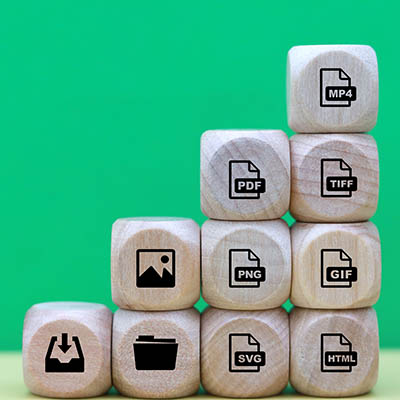For most businesses, integrating artificial intelligence isn’t just about picking the right software; it’s about doing what you can to properly feed the beast. AI runs on data, and if that data is a chaotic mess, your expensive tools will be trying to solve a puzzle with half the pieces missing and the other half upside down.
You might like to think your team keeps to your officially assigned technology, but is this actually the case for your business? The real world is often messier and less clear-cut, and you might have a team that has downloaded unapproved tools to their devices in an effort to make their workdays easier. You have a responsibility to manage this chaos—also known as shadow IT—before it becomes your company’s downfall.
When it comes to technology, there is a constant friction between convenience and security. No consumer device illustrates this tension better than the Ring doorbell. To most, it is a tool to catch porch pirates; to IT professionals, it is a persistent IoT sensor with a direct, unencrypted line into one of the world’s most massive cloud ecosystems. The real controversy isn’t about filming a sidewalk; it’s the transparency gap between what is being captured and what the company openly admits to. Most users believe they are buying a digital peephole, but the reality of how Amazon captures, processes, and utilizes that data is far more complex.
Artificial Intelligence (AI) has moved from science fiction to a daily reality, fundamentally reshaping how we work and communicate. Yet, behind every groundbreaking AI application lies massive infrastructure in the form of data centers. These sprawling facilities, packed with servers, storage, and networking equipment, aren’t just filing cabinets for data; they are the engines that make AI possible. Today, we are going to look at the data center and the pros and cons society will see from the expansion of AI.
For anyone who has seen the movie Moneyball, remember Billy Beane and the Oakland A’s? In the early 2000s, Beane revolutionized baseball with “Moneyball,” a radical approach to team building. Faced with a shoestring budget, he eschewed traditional scouting metrics and instead used sabermetrics—advanced statistical analysis—to identify undervalued players. The result? A small-market team consistently outperforming richer rivals, proving that data, not just dollars, could buy success. Fast forward to today, and the principles of Moneyball are more relevant than ever for modern businesses. In an increasingly competitive landscape, every company, regardless of size or industry, can leverage data to make smarter decisions, optimize resources, and ultimately, build a better business for less.
Having a backup is always a smart idea, but it is essential to remember that there are different levels of backup that a business can implement. It’s one thing to be protected against a server crash; it’s quite another to be protected against a disaster that destroys your servers, as well as those of every business within a five-block radius. While local backups serve a purpose, they cannot be the only thing you rely on. Real resilience means looking elsewhere to achieve redundancy.
Do you ever see the little letters after a file and wonder what they stand for? While you might intuitively know from the thumbnail what kind of file you’re looking at, these letters, called file extensions, help to differentiate them from one another. Let’s go over some of the common file types you might encounter during your day-to-day work.
It’s the summer solstice tonight, the official start of the summer season. While most of us want to focus on honing our grilling skills and soaking up as much sun as possible, we can’t afford to let our cybersecurity awareness falter as a result. Let’s review how you can stay secure while enjoying the season.
When did you last open a spreadsheet and just sigh upon seeing the expanse of data points, with a sigh that comes from the deepest depths of your soul? It’s a fair reaction to have… especially when you know how much value there is to be found within these data sets. Let’s walk through how you can extract this data by using Microsoft Excel’s Quick Analysis features… and don’t worry if you tend to use Google Sheets. The processes are essentially the same for everything we’re covering.
Is your business still gazing at the cloud from afar, wondering if it’s truly the promised land of IT efficiency? For many organizations, a move to the cloud for mission-critical operations can be complicated. Hesitation, while understandable, can be the biggest drain on your future potential. Let’s go through why those cloud migration worries might just be myths in disguise, and how we can help you shift into high gear.










